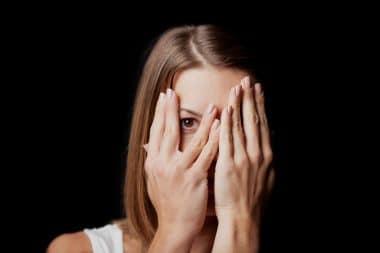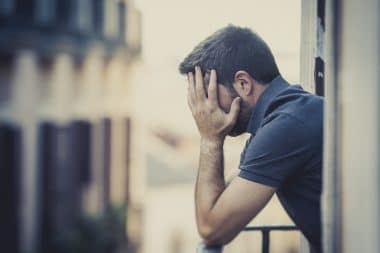Try reducing stress and anxiety with fresh, natural scents. In general they induce a calming state. In one recent study, volunteers became extremely anxious when they were confined in coffin-like tubes, but then calmed down when the tubes were infused with the smells of green apple and cucumber. These odors seem to have an impact on the limbic systems, the emotional center of the brain. If you anticipate a situation where you will feel anxious, try a shampoo with green-apple flavored shampoo.
Here are a few tips that will lower stress in five minutes or less:
ï‚· Move around.
ï‚· Walk rapidly around your workplace.
ï‚· Take a quick walk around the block.
ï‚· Climb rapidly up and down a flight of stairs to really get the heart pumping.
ï‚· Do 15 jumping jacks in place.
ï‚· Stretch while seated at your desk. Link your fingers under a knee and draw it to your chest. Repeat with your other knee. This stretches the legs and the lower back.
ï‚· Stretch your arms above your head, palms up and fingers linked. Dangle hands at your sides, then raise right shoulder to right ear, keeping the head vertical. Repeat this with the left shoulder. Finally, flex and bend back the fingers of each hand. Hand stretches are especially important if you use a computer for long periods.
ï‚· Take 10 long deep breaths. Your belly should expand as you inhale and contract as you exhale.
ï‚· Massage your eyes by placing your palms over them and apply gentle pressure while circling your palms. Try the same technique for your ears. Periodically, try to block out all sight and sound for just a second or two. Researchers report that this can be a refreshing experience from a psychological standpoint.
ï‚· Experiment with aromatherapy. A drop of citrus essential oil like lemon-lime or orange is refreshing for your office or home and is not overbearing.
ï‚· Early morning sleep is really the most restful sleep you can get. Men sent to bed at 2:15 a.m. and awakened at 6:15 a.m. slept more soundly than ones sent to bed at 10:30 and awakened at 2:30 a.m. So, if you are stressed and can get only four hours of sleep, stay up as late as possible to get the most benefit from your limited sleep. This does not replace a full night”s sleep. Resume normal sleep pattern as quickly as possible.
To reduce stress, try relaxation exercises. Sit quietly and breathe deeply and slowly. Relax each part of your body, starting with the top of your head and finishing with your toes.
Meditation is a favorite stress buster for some people. Getting away from the everyday hassles of the world and turning your thoughts inward is a great stress buster. Meditation helps you see the objectivity in your own life and thoughts in a detached manner. Meditation is proven to reduce anxiety, work related stress . . . and blood pressure, too.
There are many meditation techniques, but here is a common one that is simple:
ï‚· Sit quietly and comfortably in a place where you will not be disturbed.
ï‚· Focus your attention on your breathing.
ï‚· Feel the breath as it comes into your nose. . . . and when it goes out.
ï‚· Other thoughts will enter your mind. Just observe them and let them go. Return your attention to your breath.
Start practicing meditation for five to 10 minutes a day, gradually increasing it to 20 to 30 minutes. Keep a clock nearby so you can keep track of the time but don”t use an alarm that might be jerk you back to full alertness too quickly.
Regular moderate exercise reverses much of the damage caused by stress and can also improve immune system function, lower blood pressure and improve your mood. The reason is because any physical activity negates the fight-or-flight response and can leave you feeling less tense, anxiety free and invigorated.
Aerobic exercise is an effective stress buster but you may be more suited to relaxed walking. Any exercise that suits you is fine. Just be sure to do it for at least 20 minutes each day. Don”t overdo it, however, because more is not necessarily good for you.
Human beings have an inborn affinity for nature. The scientific name for it is “biophilia.” What that means is we enjoy things having to do with nature. Having “natural” things around us is psychologically beneficial. For example:
ï‚· Having an office with a view is not just prestigious. Studies have shown that workers who have a view of grass and trees exhibit less stress than who look at parking lots.
ï‚· Dentists who have an aquarium in their waiting room report that their patients are less anxious.
ï‚· Eating lunch on a park bench will relax your body.
ï‚· To reduce stress try spending time in the garden and your troubles will seem unimportant.
ï‚· Living in the city has its own stress factors. When it comes to a vacation, try planning it in a totally different environment like the mountains or seaside.
ï‚· Research studies show that people who have pets are generally healthier and have better methods of coping with stress. Consider obtaining a cat, dog or even a bird.
Humor is a great stress buster. Keeping a sense of humor and learning not to take yourself so seriously definitely helps. It”s hard to remain stressed when you are laughing at yourself. Try looking for the lighter side of every situation. Indulge your taste for entertaining books and movies. If you have a favorite cartoon or saying, cut it out and put it on your bathroom mirror or refrigerator. Try silly antics, things that you would normally not even consider like walking in the rain or feeding birds in the park.
Cultivate friendships. Having close ties with others can make you feel warm inside. Having someone to talk to about your problems makes the problems much easier to deal with.
Just having a friend helps reduce your blood pressure and research has shown that those who have lots of friends tend to have a lower level of cholesterol and strong immune systems. Talk about your feelings with family members, friends or a therapist, if necessary.
Following a high carb, low protein diet can help with reducing stress for a short period of time, but should not be undertaken on a long term basis as the carbs represent just a short term energy boost.
Other foods that fight stress are foods that are rich in vitamins C and A like raw carrots, peppers and broccoli. There”s a bonus as well, chewing crunchy foods helps to dissipate tension.
How about some natural therapies for stress? Here are a few:
ï‚· Lavender – Use the flowers. This is a beautiful herb and is widely used. Many do not realize that it is an effective treatment for headaches related to stress. Also good for depression.
ï‚· St. Johns Wort – Taken internally, has a sedative and pain reducing effect. Use in treatment of neuralgia, anxiety, tension and similar problems.
ï‚· Vervain – Also known as Wild Hyssop. Will strengthen the nervous system while easing depression and melancholia. Good for fever and best for colds, and for menopausal irritations.
Here are more tips to consider for reducing stress:
ï‚· This one is a “no-brainer” and we won”t go into detail here, but if you are a smoker — STOP!
ï‚· Try to avoid tight deadlines, keep your schedule looser.
ï‚· Ask for help instead of insisting on doing it all yourself.






Reply